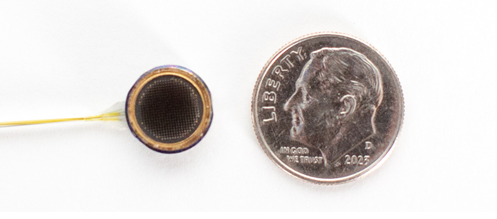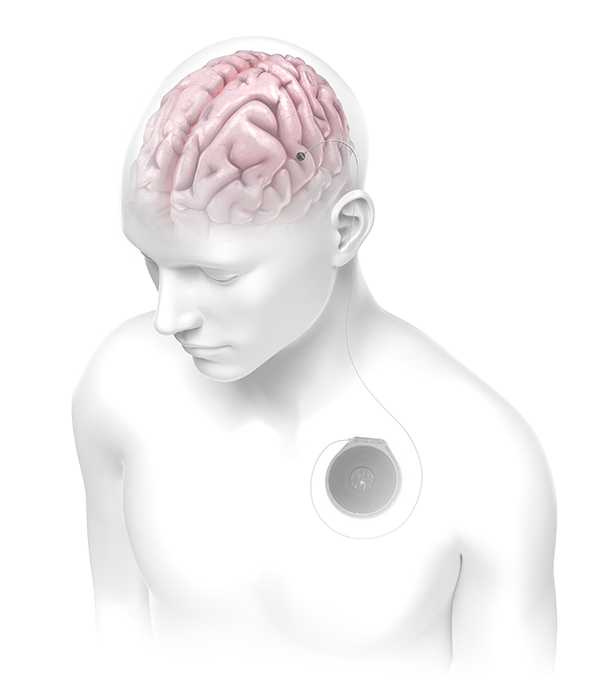Is your speech very hard to understand, or are you unable to talk because of a nerve or muscle problem?
You may be able to join the Connect-One Clinical Study.
When paralysis makes it hard to talk, it can feel like your voice is cut off from your thoughts. The Connect-One Clinical Study is testing a brain-computer interface (BCI), called Connexus® BCI, to see if it can help rebuild the link between what you want to say and your ability to speak.
As one of the first participants, your feedback can help shape a future where you, and countless others, can communicate and live more independently.
Learn About
The Study


Brain signals travel from the Connexus Brain Interface to a chest implant.
Connect-One is the first study to test the Connexus BCI in people.
After surgery to place the device, the Connexus BCI reads from the brain area that controls speech movement and is designed to turn brain signals into text, a digital voice, or commands for a phone or computer.
Participants will meet with the Connect-One Team several times a week to help adjust the system for their communication needs. Support by a dedicated team will continue throughout the 6 year study.
Do you qualify to participate?
- Are an adult between 22 and 75 years old.
- Are diagnosed with a progressive disease (like Amyotrophic Lateral Sclerosis (ALS)) or an injury that affects muscles or nerves (like a brainstem stroke).
- Have trouble speaking, such as slurred speech (dysarthria) or loss of control over speech muscles (anarthria).
- Can communicate well enough to agree to join the study and share experiences.
- Can read and understand English.
- Have experience using assistive communication devices, like eye-tracking systems.
- Live within 4 hours of Ann Arbor, MI.
- Have another implanted device, like a pacemaker, deep brain stimulator, or implantable pulse generator.
- Need regular MRI scans.
- Require certain treatments, such as Electroconvulsive Therapy (ECT), Transcranial Magnetic Stimulation (TMS), or diathermy.
TO QUALIFY, PARTICIPANTS NEED TO LIVE IN THE UNITED STATES IN THIS AREA:
Greater Sacramento, CA
Greater Ann Arbor, MI
Ready to take the next steps?
Submit your email to stay up to date on study progress and ways to get involved.
Join the community
A receiver worn on the chest sends signals to a computer.
The devices used in this study are only available for investigational use, and are not for sale in any country.
